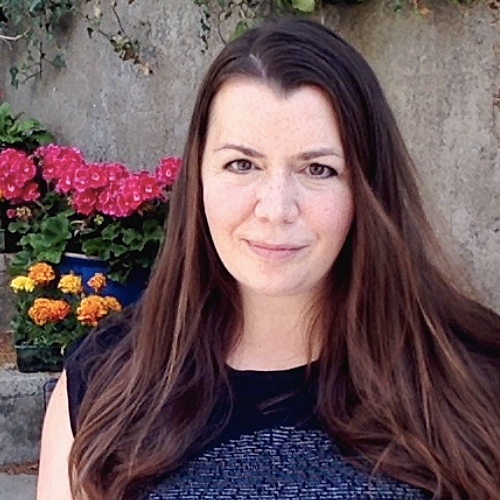 Lactation & Breastfeeding Online Course(s) & Continuing Education
Lactation & Breastfeeding Online Course(s) & Continuing Education
Access the latest clinical skills and research for Lactation & Breastfeeding for professional training. These Lactation & Breastfeeding online courses provide practice-changing skills and valuable perspectives from leading global experts. This Lactation & Breastfeeding education has been accredited for a variety of CEUs / CERPs and can be accessed on-demand, at your own pace.
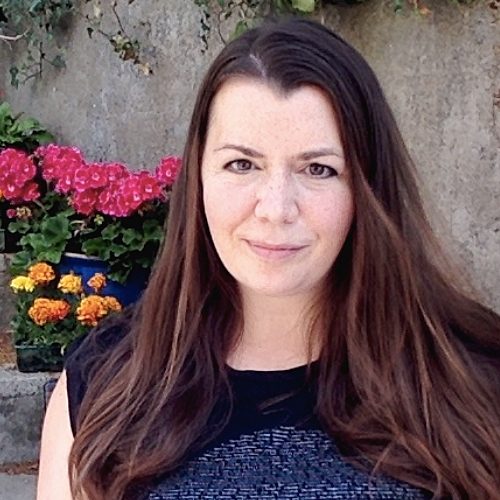

Professor Amy Brown is based in the Department of Public Health, Policy and Social Sciences at Swansea University in the UK. With a background in psychology, she has spent the last thirteen years exploring psychological, cultural and societal influences upon infant feeding decisions in the first year. Her research seeks to understand how we can shift our perception of how babies are fed away from an individual mothering issue to a wider public health problem – with societal level solutions. Dr Brown has published over 60 papers exploring the barriers women face in feeding their baby during the first year. She is a mother to three human children and three book babies: Breastfeeding Uncovered: Who really decides how we feed our babies, Why starting solids matters, and The Positive Breastfeeding Book: Everything you need to feed your baby with confidence. She is a regular blogger, aiming to change the way we think about breastfeeding, mothering and caring for our babies.
Topic: Breastfeeding Trauma: How Can We Recognise and Support Mothers Who Wanted to Breastfeed but Were Unable to Meet Their Goals? - [View Abstract]
Topic: How Can We Better Support Mothers Don’t Meet Their Breastfeeding Goals? - [View Abstract]
Topic: What Do Normal Infant Feeding Patterns Really Look Like? - [View Abstract]
We know that responsive feeding gets breastfeeding off to the best start. New parents are told that breastfed babies often feed 8 – 12 times a day, but in practice many new mothers will find themselves breastfeeding more frequently than this. Research exploring breastfeeding frequency is however conducted primarily with younger infants, focuses simply on breast versus bottle, or was funded by industry.
This presentation reports novel findings from a research study of 18,000+ mothers with a baby or child aged 0 – 5 years old. It examines how often babies feed during the day and night for each age range by milk feeding type, mode, and approach (e.g. schedule versus responsive) and how frequent day and night feedings remain the norm for breastfed babies into the preschool years. The data also explores differences in maternal perceptions of infant variations in hunger e.g. in response to growth spurts, variations over different days, and cluster feeding, highlighting how breastfeeding mothers describe a more varied pattern of infant feeding compared to those formula feeding.
Together the findings challenge notions that most babies breastfeed between 8 – 12 times per 24 hour and that irregular patterns or varied numbers of feeds are normal for breastfed infants. Although many breastfeeding practitioners will recognise this pattern, these findings will provide both an addition and challenge to the scarce existing research literature on infant feeding patterns.

View Details / Enroll


Carol Smyth is an IBCLC and Cognitive Behavioural Psychotherapist working in a busy private practice in Northern Ireland. With a background in psychology she is driven by a passion to promote attachment based and trauma informed care to families and babies. She is the author of the Why Infant Reflux Matters book, both an HCP education resource and a self-help book for families worried about their baby’s reflux symptoms. Her interest in fertility while breastfeeding began when breastfeeding and wanting to grow her own family, and finding that research on the topic was very scant. Pulling together what was available she created a series of resources on her website, which are highly viewed.
The impact of breastfeeding on fertility has been neglected by research in recent years. There can be significant variation in when the menstrual cycle returns for parents, which can impact their plans for family expansion. Some who conceived easily before breastfeeding, can find it much more difficult to conceive while breastfeeding. Some who struggle with recurrent miscarriage can wonder if breastfeeding is impacting their ability to carry to term. Many are left wondering whether to wean their nursling in order to conceive again, which can be a very difficult decision to make, when that conception is uncertain. This presentation will review the research on how breastfeeding affects the menstrual cycle, how fertility is initially suppressed and how it returns, the ongoing effect that breastfeeding can have on fertility, how to use breastfeeding as a contraceptive method (if desired), how to maximise chances of conception (if desired) and whether it may affect a pregnancy after conception has occurred.
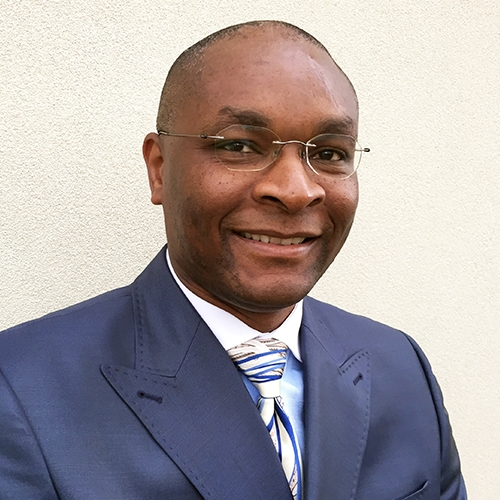
What Role Do Fathers’ Cultural Experiences Play in the Decision to Support Breastfeeding?

Muswamba Mwamba is a father of five breastfed children. An International Board-Certified Lactation Consultant, a public health practitioner, and a scholar; his research interests focus on immigrant health within the minority group in the context of the US health disparity. Muswamba helps mothers and babies obtain the best health outcomes by teaching and inspiring their partner/ father to fight to remove barriers that prevent successful breastfeeding. As a professor at the University of North Texas at Dallas, Muswamba disseminates clinical and non-clinical information to inform graduate students of significant developments and trends in the field of infant feeding.
Muswamba is a lifelong learner. He trained in Belgium, where he earned a bachelor's degree in agricultural engineering, a master's degree in human nutrition biochemistry, and a second master's degree in food science and technology. Witnessing striking disparity in his maternal and child health practice, he deepened his understanding of public health's complexity in the US and elsewhere. He earned a master's degree in Public Health at the University of North Texas and a doctoral degree in Public Health Executive Leadership from the University of North Carolina at Chapel Hill.
Male breastfeeding support is evidenced to influence breastfeeding behaviors. Fathers play a vital role in determining women's choice to breastfeed. Many studies regarding fathers' breastfeeding influence included participants from a variety of ethnic backgrounds. Only a few studies examined African American men's breastfeeding attitudes. Within the U.S. disparity context, Black African immigrant breastfeeding experiences have not been measured.
The social and cultural breastfeeding experiences of Congolese Immigrants compared to those of African Americans were explored, analyzed, and contrasted. In the immigrant study, the breastfeeding cultural practice's visibility enables the breastfeeding perceptions of Congolese fathers. They identify their Congolese origin as a warrant for breastfeeding decisions and practice. Breastfeeding is a natural process that does not require prior deliberations between expectant couples. Breastmilk is valued for its God-given virtues rather than its medical benefits.
In the cultural context of African American, family, and friends enable breastfeeding support perceptions. Personal experiences and knowledge of breastfeeding benefits are predictors of breastfeeding decisions. However, there is not a cultural, existential framework supporting breastfeeding.
This study's findings and recommendations guided the development of a dynamic African American men breastfeeding support toolkit designed to utilize existing public health structures.

View Details / Enroll

View Details / Enroll

What to Do When the Laid-Back Breastfeeding Position Doesn’t Work…Self Attachment, the Flipple Technique and the Koala Hold All With a “Hands Off” Approach

Meg is the mother of three breastfed boys and lives with her husband and children in QLD, Australia. She is an International Board Certified Lactation Consultant (IBCLC) in private practice and works with parents to help them reach their breastfeeding goals. She has a degree in psychology and her prior work was is in counselling and sexual health. She was a La Leche League Leader (breastfeeding counsellor) for seven years before becoming an IBCLC. Meg is the author of two books including, "Boobin' All Day...Boobin' All Night. A Gentle Approach To Sleep For Breastfeeding Families". She has published articles in numerous parenting magazines and websites. She was also filmed for a short documentary, "Lactaboobiephobia", based on one of her blog posts which was released in 2016.
Topic: Breastfeeding With A Tongue Tie. How Can We Help When A Tie Revision Is Not Possible? - [View Abstract]
Topic: Exclusively Breastfeeding Triplets-Case Studies - [View Abstract]
Topic: Social Media Backlash – Addressing Emotionally Charged Responses - [View Abstract]
Topic: What to Do When the Laid-Back Breastfeeding Position Doesn’t Work…Self Attachment, the Flipple Technique and the Koala Hold All With a “Hands Off” Approach - [View Abstract]
As Lactation professionals we are taught and often reminded of the “laid back breastfeeding position” or “biological nursing” and how this can best facilitate a great latch. While this can be very useful and helpful in most cases, there will be circumstances where this position does not lead to a better latch and leaves the professional, the mother and the baby continuing to struggle.
This presentation will explain other useful and practical tips on how to help facilitate a baby to get the best latch possible, why the “look” of the latch does not matter, all while empowering the mother and baby to do it themselves, without physical help from the professional. The techniques covered include self-attachment in the side-lying position, self-attachment in the koala hold and trying the flipple technique to get as much breast tissue into the baby’s mouth as possible. This can be helpful for all babies struggling with latch including babies with tongue and/or lip ties. This presentation will include video examples and practical tips.

View Details / Enroll

View Details / Enroll
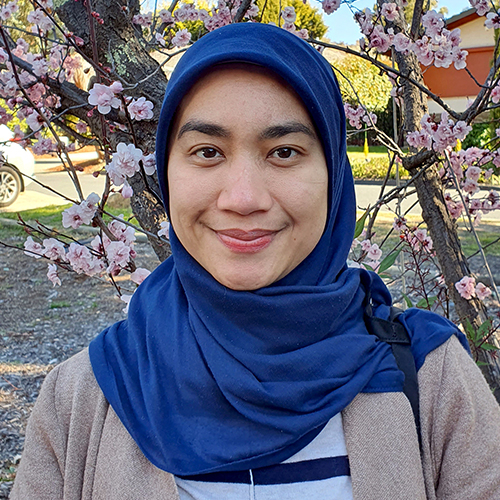
What’s New With Ten Steps to Successful Breastfeeding: Updates and Its Cost/Benefit Implications

Andini has bachelor and master degree in public health, majoring in hospital administration. She is an IBCLC and is currently undertaking PhD at the Australian National University. Her PhD thesis is looking at the facilitator and barrier of Baby Friendly Hospital Initiative implementation and accreditation in Indonesia and Australia. One part of her PhD was measuring its social value using Social Return on Investment.
Her journey began when she was pregnant with her first child, then found and attended full series of Indonesian Breastfeeding Mothers Association (AIMI)'s breastfeeding classes. She then decided to volunteered as breastfeeding counselor at AIMI.
With her work experience in hospital management consulting for 8 years and personal experience when her breastfed son undertook open heart surgery, she realized that not every hospitals provide adequate education and support for breastfeeding mother, either since pregnancy, during and after birth.
Andini was awarded Deeble Summer Research Scholarship from Deeble Institute for Health Policy Research Scholarship Program of Australian Healthcare and Hospitals Association (AHHA) in 2020 and published a Health Policy Issues Brief titled "Improving the Uptake of the Baby Friendly Health Initiative in Australian Hospitals" as the outcome. Thanks to her supervisor, Andini involved in working group for Breastfeeding Friendly Workplace Accreditation at ANU in 2018-2019 and involve in WBTi Australia since 2019. Currently living in Canberra Australia, Andini has been providing breastfeeding education and assistance for Indonesian mother-student, students' wives or any Indonesian women who live in Canberra.
In 2018, the World Health Organization (WHO) issued the first revision of the 1989 WHO/UNICEF Ten Steps to Successful Breastfeeding. Revisions are subtle, yet meaningful for implementation. A major change made by WHO is subdividing the Ten Steps into 1) critical management procedures, and 2) key clinical practices. Lessons have been learned on how the change has shifted the focus from health care staff to parents and families and shifted the responsibility for some elements of care from hospitals to the community. In this presentation, we will compare 1989 and 2018 Ten Steps, and explore its cost and benefit implications for diverse stakeholders, such as healthcare professionals, parents, family and government.
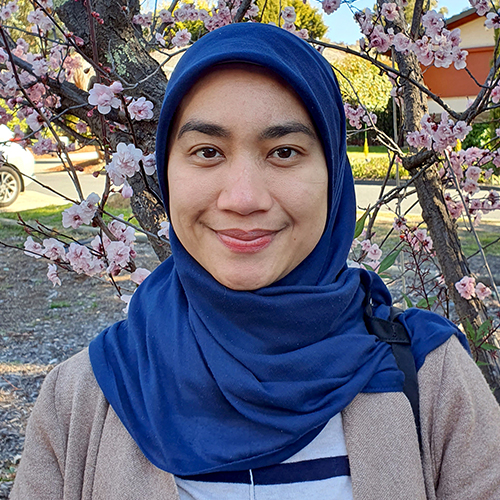
View Details / Enroll


Liz Brooks is a private practice International Board Certified Lactation Consultant (IBCLC) and licensed lawyer, with expertise in criminal, administrative, non-profit, ethics, and lactation-related law. Liz offers in-home lactation consultations, and bedside care and teaching in two Baby-Friendly-designated hospitals.
She has been a leader in organizations for IBCLCs, breastfeeding promotion, and non-profit human milk banking. She authored the only textbook on legal and ethical issues for the IBCLC, and writes on health care ethics, equity, and conflict-of-interest in several books, blogs, and peer-reviewed journals.
She is a popular international conference speaker, offering practical tips with wit and wisdom for anyone who works with lactating and human milk-using families. Liz self-identifies as a cisgender hetero white woman with unearned privilege, and uses she/her/hers pronouns.
Topic: Using a Cool Head When You’re on the Hot Seat: Ethical and Legal Topics That Make Us Sweat, and How to Avoid Getting Burned - [View Abstract]
Topic: What’s Too “Friendly” for an IBCLC on Social Media? - [View Abstract]
Topic: Whiners and Deniers: Ethics and Diplomacy in Difficult Cases - [View Abstract]
It's all about the Internet! Families in 2015 want to be connected to their network of families and friends. They use Internet-accessing devices and social media to share news, gather information and seek opinions. If this is where families are ... can an IBCLC (or other healthcare provider) be there, too, without violating long-standing principles of privacy and professional ethics? Can healthcare providers engage in clinical discussion with someone on Facebook, Twitter, a chat room or a website? What about real-time webinars, or static websites, where mothers type in their clinical questions? Is texting ever permissible? Can a clinician post a picture of a client, or ask colleagues on a private listserv about a tricky case? We'll learn how the Internet is used by new families to seek and share information, and the professional risks of "friendly" clinical care by the IBCLC or HCP who joins the conversation.


Lucy is an International Board Certified Lactation Consultant (IBCLC) Holistic Sleep Coach (HSC), public speaker, and author on the topic of lactation. She is also a qualified counsellor, child and is qualified in child development and child psychology.
Lucy runs a small but thriving Private Practice based on the South Coast of the UK but sees clients internationally. As a single mother of two boys who were hard to breastfeed, and as someone with ADHD, Lucy truly understands the highs and lows of parenthood both for neurotypical families and those who may have additional challenges.
Lucy’s approach is strongly underpinned by the belief that parents are the only true expert on their child, and that parental instinct is rarely wrong. Lucy uses listening and counselling skills first and foremost in her work, and prides herself on striving to provide a safe and inclusive space for everyone.
Topic: When Baby Says No: Assessment and Management of Breast and Bottle Refusal - [View Abstract]
Breast or bottle refusal can be distressing for parents and present a significant challenge for professionals. There are many underlying reasons why infants may display feeding aversion. These are often multi-layered and typically include emotional as well as anatomical or physical difficulties. During this presentation we will consider the causes of both breast and bottle refusal, looking at how these may present under different circumstances. We will explore how refusal impacts the parent – infant relationship and maternal self-efficacy. Once we have a clear, holistic picture regarding the complexities of feeding aversion, we will look at ways to support the dyad to overcome their difficulties including through working with other professionals. For those parents who find they cannot overcome the challenges they face, we will look at ways to help them reframe the experience and shift feelings away from failure and towards success.

View Details / Enroll

When Breast Isn't Best: Challenges and Opportunities In Breastfeeding for Sexual Abuse Survivors

Elizabeth M. Johnson, MA is a trauma educator and peer support advocate in private practice. She helps people understand how sexual abuse affects sexual and reproductive health. She looks at how sexual abuse affects breastfeeding for example but also how traditional sex education ignores issues like how past abuse affects consent, teen pregnancy and risky behavior. Using a trauma lens, Elizabeth talks about everything sexual health related from Asking (about abuse) to Z(zzzz's) and everything in between. Elizabeth is the only educator in the world specializing in training and consulting on this topic.
In addition to training, speaking and consulting, Elizabeth has facilitated a free, weekly peer support group for sexual abuse survivors for over three years. She holds a Masters of Arts degree in Womens Studies from Southern Connecticut State University. Elizabeth identifies as a rape survivor and has worked with survivors since 2005. She lives in Durham, NC with her family.
Topic: When Breast Isn't Best: Challenges and Opportunities In Breastfeeding for Sexual Abuse Survivors - [View Abstract]
The benefits of breastfeeding are well known. Less known is how pervasive and long-lasting the effects of sexual abuse can be. As many as 1 in 3 women are survivors of contact sexual abuse. And, unfortunately, sexual abuse is rarely over when it's over.
Most new parents state that they want to at least “try” breastfeeding. And yet everyone knows someone for whom breastfeeding “didn’t work”. While informed care can sometimes help families stick with breastfeeding, even well-intended support can be triggering. Providers who deal with new families must have a working knowledge of sexual abuse as well as a trauma-informed approach in order to effectively support breastfeeding families. Learn how abuse can impact ability and desire to breastfeed, red flags that could indicate a history of sexual abuse and practical tools to support all families in a sensitive way.

View Details / Enroll

View Details / Enroll


Dr. Nastassia Harris is a licensed registered nurse with over 15 years’ experience in perinatal nursing and became an International Board Certified Lactation Consultant in 2009.
Nastassia serves as an assistant professor in the school of nursing at Montclair State University. Over her career Nastassia developed a passion for eliminating disparities in black infant and maternal health. In 2018, she went on to found a nonprofit, the Perinatal Health Equity Foundation where she serves as the executive director. Through the nonprofit, Nastassia established Sistahs Who Breastfeed, a breastfeeding support group for black women which operates in several NJ cities.
She is active in several committees and organizations including the Association of Women's Health Obstetrics and Neonatal Nursing and the Black Mamas Matter Alliance. Nastassia's research and clinical interests include implicit bias/racism in healthcare, breastfeeding in the black community, obstetrical violence, high risk OB, and reproductive justice.
Topic: When It's Time to Let Go... Stories of Weaning - [View Abstract]
Weaning is an inevitable component of breast/chestfeeding. Many families have expressed feeling unprepared for the experience and the challenges they face in that journey. This presentation will explore the current research and lived experiences of weaning among different families and cultures. We will discuss strategies that were both effective and ineffective in the weaning process, time period in which families began the weaning process as well as tips and tricks from the parent perspective that lead to successfully weaning their child. Weaning will be discussed in the context of the impact on both the parent and the child.

View Details / Enroll


Divya Sinha Parikh MD, IBCLC, FAAP is a board certified pediatrician practicing in Columbus, OH. She received her medical training at The University of Pittsburgh School of Medicine and completed her residency in general pediatrics at Rainbow Babies and Children’s Hospital at Case Western Reserve University. She formerly served on the Baby Friendly Hospital Initiative Committee at MetroHealth Hospital Systems in Cleveland, OH and created a breastfeeding medicine clinical rotation during residency. Within her practice, she has extensive experience managing lactation concerns and has taken a special interest in mentoring current and aspiring breastfeeding providers. She has presented her work at local and national meetings.
Topic: When Supply is Greater than Demand: Maternal Hyperlactation Syndrome - [View Abstract]
The objectives of this lecture are to understand the definition, pathophysiology, and basic management of hyperlactation. Topics discussed will include proposed mechanisms leading to hyperlactation, health effects on mother and baby, and approach to diagnosis and management. Participants will learn key history and physical findings for hyperlactation, behavioral interventions to reduce milk supply, herbal and medical interventions to reduce milk supply, and will learn how to determine which dyads would benefit from medical intervention.

View Details / Enroll

View Details / Enroll



